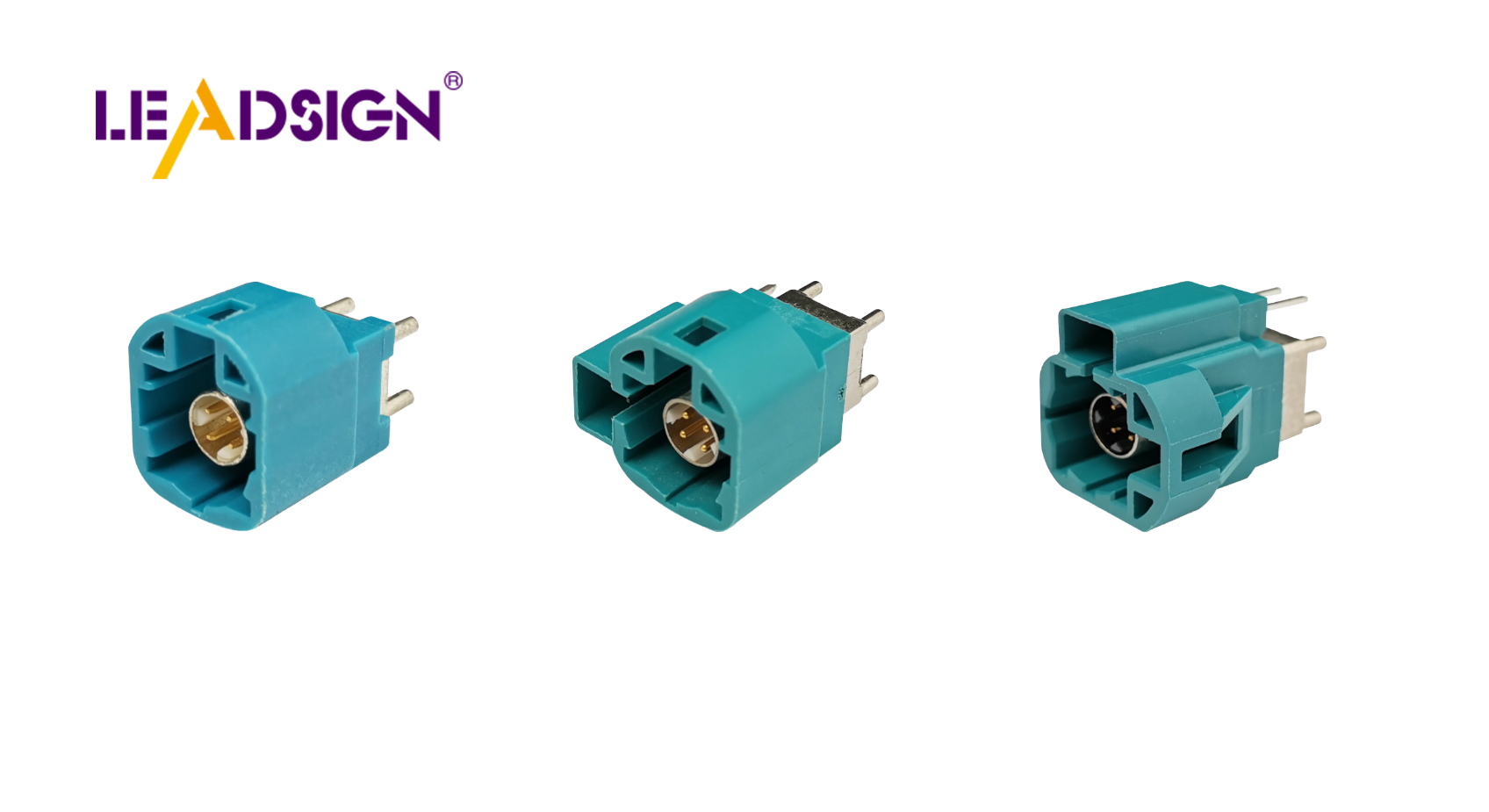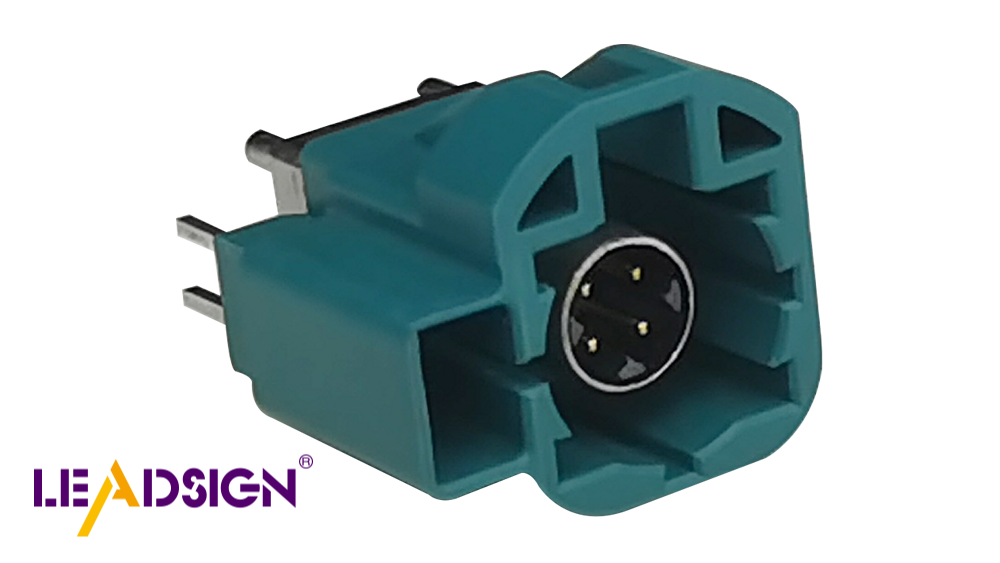Understanding Automotive Electrical Connector Plugs for Reliable Performance

Car electrical plugs, including the car connector plug, are important for your car to work well. Picking the right plug helps it last longer and work better. Bad plugs can cause big problems:
Rusty plugs make connections weak and lower power.
Burnt plugs from heat can break parts.
Good plugs, like the car connector plug, keep your car safe and save you money on fixes.
Key Takeaways
Picking the right car plug is very important. It stops problems like losing power or rusting.
Use waterproof plugs to guard against bad weather. They block water and dirt, keeping connections strong.
Take care of plugs often to avoid trouble. Clean them and look for damage to keep your car working well.
What Are Automotive Electrical Connector Plugs?
Definition and Purpose
Car electrical plugs are key parts of your car's system. They connect wires so electricity can flow to different parts. These plugs help systems like lights and the engine work well. To handle tough conditions, they must meet strict SAE and ISO rules. They make sure connections are strong, safe, and long-lasting, which is important for your car to run properly.
Role in Vehicle Electrical Systems
Connector plugs link different electrical parts in your car. They move power and data to keep things like safety features and engine controls working. These plugs protect connections from water, heat, and dirt. This keeps your car's systems working without problems. Without them, power and signals wouldn’t reach important parts, causing issues.
Common Applications in Modern Vehicles
In today’s cars, electrical plugs connect many systems together. They send power and signals to things like cameras and sensors. As cars get more advanced, these plugs are more important than ever. Multi-pin plugs are used a lot because cars have more electronics now. They help send both power and data, making sure your car works well and stays reliable.
Types of Car Electrical Connectors

Wire Terminals
Wire terminals are simple car connectors. They join wires permanently to parts. These are used in systems needing strong and lasting connections. Made of metal, they handle tough conditions and high power. But, you need tools like crimpers or soldering kits to install them. This makes them harder to use for quick fixes.
Feature | Wire Terminals | Multi-Pin Connectors |
|---|---|---|
Scope | Permanent connections, need tools | Quick connections, no tools needed |
Application | Power input/output systems | Used in many devices |
Durability | Metal, very strong | Plastic, less strong |
Current Capacity | Handles high power | Handles lower power |
Multi-Pin Connectors
Multi-pin connectors are useful and common in cars today. They connect many wires in one plug. This makes them great for sending power and data together. They are easy to use and don’t need tools to install. But, they are often plastic, so they aren’t as strong as wire terminals. You’ll see them in things like cameras, sensors, and entertainment systems.
Weatherproof Connectors
Weatherproof connectors work well in tough weather. They keep water, dirt, and rust away. These are great for cars in wet or hot places. Using them has many benefits:
Last longer by resisting rust.
Keep systems running without problems.
Make cars safer by stopping electrical shorts.
Useful for off-road vehicles and other tough uses.
Quick Disconnects
Quick disconnects are good for wires you connect and disconnect often. They are easy to use and don’t need tools. These are common in car lights and sound systems. They stay secure but are simple to fix or upgrade.
Specialty Connectors (e.g., OBD-II, CAN bus, HSD connectors)
Specialty connectors do special jobs in cars. OBD-II connectors help check your car’s health and performance. They also let you reprogram some systems. CAN bus connectors help car systems talk to each other. Since 2008, all U.S. cars must have OBD-II and CAN bus systems.
HSD connectors send data quickly for cameras, USBs, and screens. They have locks to stay secure and avoid wrong connections. Their strong design makes them last in tough car conditions.
How to Pick the Best Car Connector Plug
Understanding What You Need
To pick the right car connector, think about your needs:
Environmental Conditions: Check for heat, cold, water, or chemicals. Choose connectors with good IP ratings.
Connector Type: Match the connector to the wire size and purpose, like EV chargers or high-voltage use.
Material Quality: Use connectors with gold or tin plating to avoid rust.
Sealing Mechanisms: Weatherproof connectors block dirt and water from causing problems.
Ease of Installation: Pick connectors that are simple to set up and fix.
Checking Material Strength and Quality
Good connectors are made from strong materials. These materials resist rust and damage. Gold or tin-plated parts last longer and work better. Plastic housings are light and fit most cars. Metal housings are stronger and protect better in tough conditions. Always choose durable connectors for long-lasting use.
Thinking About the Environment
Car connectors need to handle tough conditions. Look for ones that resist shaking, salt, and liquids. These features keep connections safe in bad weather or chemical exposure. Weatherproof connectors are great for outdoor or off-road cars.
Matching OEM Systems
Your connector must work with your car’s system. Make sure it meets rules and fits your car’s design. OEM connectors often work better and fit perfectly with your car’s wiring.
Checking Wires and Pins
Make sure the connector fits the wire size and pin setup. Wrong setups can cause bad connections or system problems. Count the pins and check their layout for a secure fit.
Step-by-Step Guide to Installing Auto Electrical Connectors
Tools and Materials Needed
To install car connectors, you need the right tools. These tools help make strong and safe connections. Gather these items:
Crimping tools to press terminals tightly onto wires.
A soldering iron to join wires permanently.
Heat shrink tubing and a heat gun for extra protection.
A multimeter to check voltage, current, and resistance.
Having these tools ready makes the job easier and better.
Preparing the Wires and Connectors
Getting wires and connectors ready is very important. First, cut wires to the needed length, leaving a little extra. Carefully strip the wire ends to remove the covering. Pick terminals that fit the wire size and crimp them tightly. Add seals to keep out water and dirt. Then, attach the terminals to the connectors, making sure they fit well.
Proper Crimping and Soldering Techniques
Crimping and soldering make strong wire connections. Use a ratchet crimper to press evenly and avoid mistakes. For soldering, add flux to the wire and coat the ends with solder. This helps electricity flow better and makes soldering simpler. Don’t use too much heat to avoid damage. Crimping is quick, but soldering lasts longer.
Ensuring a Secure Connection
To make sure the connection is strong, check the terminals. They should be in the right spots inside the connector. Use locks or clasps to keep the connector housing in place. Make sure the wire size matches the connector and the covering suits the environment. These steps make the connection last longer.
Testing the Connection for Functionality
Testing checks if the connection works properly. Use a multimeter to test voltage and resistance. Follow rules like EIA-364 to check reliability. Look for problems like short circuits or high resistance. Testing stops future issues and keeps your car running well.
Troubleshooting Common Problems with Car Electrical Connectors
Spotting Connector Problems
You can find connector issues by noticing these signs:
Some car parts lose power completely.
Lights or systems flicker on and off randomly.
A burnt smell or visible damage on connectors.
Overheating happens when connectors are loose or overloaded. Heat can damage parts if not fixed. Spotting these problems early saves money on repairs.
Cleaning Rust and Wear
Rust makes connectors weaker over time. To clean them:
Use compressed air to blow away dirt.
Clean with rubbing alcohol to remove leftover grime.
Smooth pins with sandpaper or an eraser to fix rough spots.
After cleaning, use dielectric grease. This grease blocks moisture and dirt. It also stops rust and keeps connections working well.
Fixing Loose or Broken Connections
Loose or broken connectors can cause car problems. Try these steps:
Wiggle the connector while the car runs. If something changes, it’s loose.
Tighten loose connectors to make them secure again.
Replace broken connectors with ones that match your car’s parts.
These fixes help connectors work better and last longer.
Tips to Prevent Problems
Regular care keeps connectors in good shape. Do this:
Wipe them clean with a soft cloth and mild soap.
Remove rust with a wire brush.
Add a protective coating or grease to stop rust.
For outdoor or off-road cars, use weatherproof connectors. These steps prevent failures and keep your car running well.
Picking the right car plug helps your car work well. Think about things like weather, plug type, and material strength. Choose plugs that block water and dirt with good seals. Take care of them and install them correctly to avoid problems. Use strong, matching plugs to keep your car running smoothly.
FAQ
What is the best way to protect connectors from corrosion?
🛠️ Tip: Use dielectric grease on connectors. It keeps out water and dirt, stopping rust. For tough conditions, pick weatherproof connectors for better safety.
How do you identify the right connector for your car?
Look in your car’s manual for details. Match the connector type, pin layout, and material to fit your car’s needs.
Can you reuse old connectors?
Old connectors can be reused if they are still good. Check for damage, rust, or loose pins. Replace any connector that looks worn or broken.
See Also
Enhancing Automotive Data Flow With Innovative Connectors
Understanding HSD Connectors Essential for Automotive Systems
Significance of FAKRA Connectors in Vehicle Technology
Crucial Role of Fakra Connectors in Today's Vehicles
Boosting Data Transfer With High-Speed Automotive Connectors

